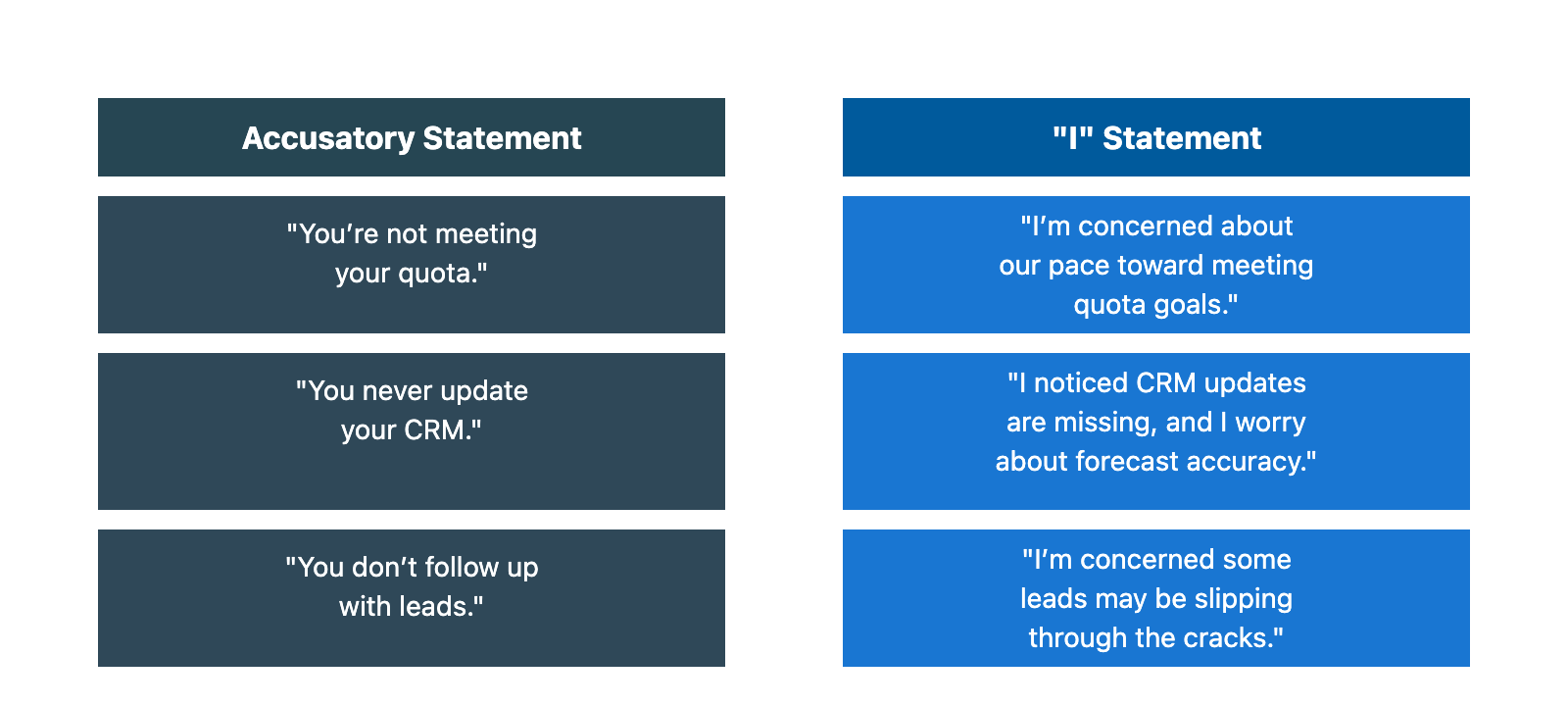Navigating difficult coaching conversations is a crucial skill for any sales manager aiming to foster team growth and maintain a positive working environment. In this unit, you will learn how to address sensitive issues with a perfect blend of assertiveness and diplomacy, ensuring that coaching sessions remain productive and relationships are preserved.
To effectively navigate coaching conversations, you must strike the right balance between assertiveness and diplomacy. Assertiveness allows you to communicate clearly and confidently, while diplomacy helps ensure that your points are received without causing offense. In practice, this means using language that is both firm and respectful, such as phrasing feedback like, "I believe there's value in trying new strategies alongside your current approach," rather than being overcritical. This method respects the team member's experience while highlighting the importance of adaptation and growth.
Additionally, actively listening to your team members is essential. Demonstrating genuine interest in their perspectives not only fosters mutual respect but also encourages an open and collaborative environment. When team members feel heard, they are more likely to engage positively with feedback and work together towards common goals. Thus, balancing assertiveness with diplomacy while treating others with respect can enhance the effectiveness of your coaching conversations.
- Nova: I've noticed your traditional sales approach has a lot of strength, but I think integrating some new strategies could boost your success even further.
- Chris: I appreciate the feedback, but I feel like my current methods work fine for me.
- Nova: I value your experience and understand the results you've achieved. I believe there's potential in blending what you do well with some innovative techniques. How do you feel about experimenting a bit without losing your core style?
In this dialogue, Nova demonstrates the balance of assertiveness with diplomacy by affirming Chris' existing methods while introducing the idea of integrating new strategies. By respecting Paul's experience, Nova facilitates a conversation that keeps the discussion productive and encouraging.
A highly effective technique in coaching conversations is the use of "I" statements. This approach helps you convey personal feelings or observations without placing blame, which is crucial for maintaining open communication. For instance, instead of saying, "You are not meeting your targets," you might express, "I'm concerned about our current progress toward meeting our targets." This subtle shift focuses on the issue at hand rather than the individual, making it easier for team members to receive feedback constructively and work collaboratively towards solutions.
 Furthermore, "I" statements can facilitate a sense of shared responsibility. By focusing on your own perceptions and feelings, you create a space where team members are encouraged to engage in a dialogue rather than become defensive. This approach not only paves the way for constructive feedback but also strengthens trust and transparency within the team, fostering an environment conducive to problem-solving and growth.
Furthermore, "I" statements can facilitate a sense of shared responsibility. By focusing on your own perceptions and feelings, you create a space where team members are encouraged to engage in a dialogue rather than become defensive. This approach not only paves the way for constructive feedback but also strengthens trust and transparency within the team, fostering an environment conducive to problem-solving and growth.
The ultimate goal of any difficult coaching conversation is to address the issue while preserving or even strengthening your relationship with the team member. To achieve this, it's vital to keep the discussion solution-focused. Once you have acknowledged the problem, you should swiftly transition to exploring potential solutions together. For example, after highlighting a performance issue, you might ask, "How do you think we can address the challenges in meeting your targets?"
Offering encouragement and recognizing achievements can also help improve team morale. When team members make progress, acknowledging their efforts—even minor ones—reinforces their positive behaviors and motivates them to continue improving. For instance, saying, "I noticed you implemented some of the new strategies we discussed and it led to a great client review!", helps underline their achievements and maintains momentum towards growth.
By mastering these strategies, you will enhance your capability as a coach, facilitating impactful conversations that drive personal and professional development. In the next session, you'll have the opportunity to engage in role-plays, allowing you to practice these techniques in realistic scenarios and further develop your coaching skills.
